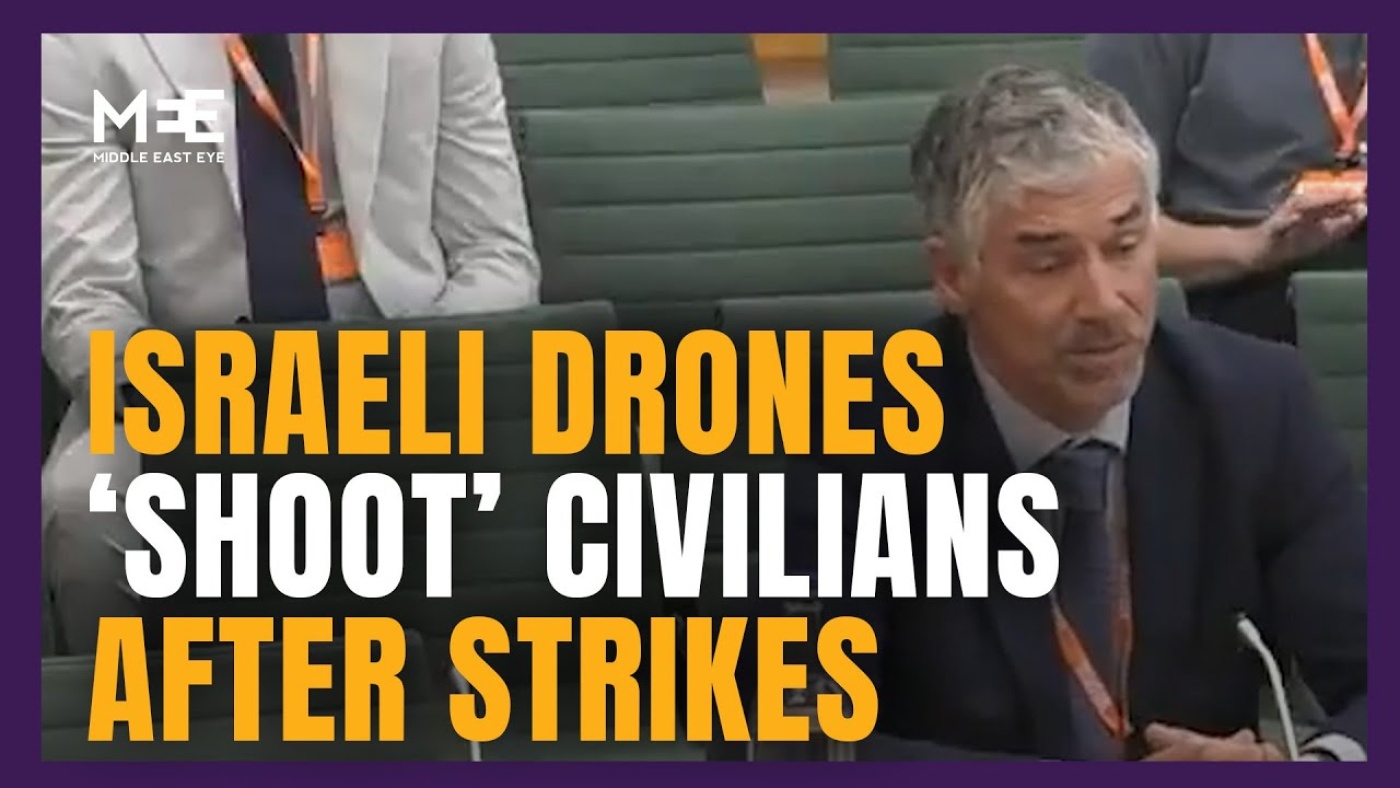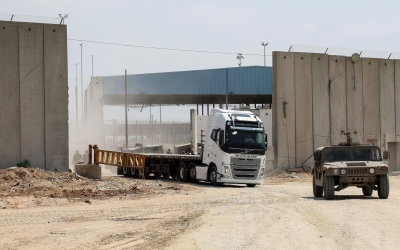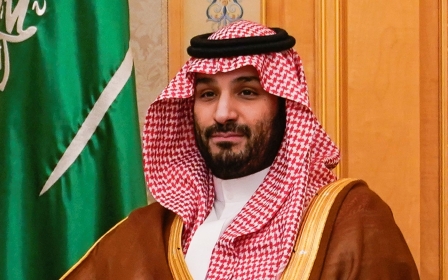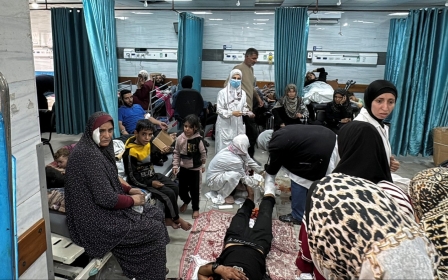Israeli drones shooting children in Gaza deliberately 'day after day', UK surgeon tells MPs
A retired NHS surgeon who recently returned from working at a hospital in Gaza said he treated children "day after day after day" who had been deliberately targeted by Israeli drones following bomb attacks.
In harrowing testimony to British MPs on Tuesday, Nizam Mamode said of all the conflicts he had worked in, including the genocide in Rwanda, he and other experienced colleagues in Gaza had "never seen anything on this scale ever".
He said at least once or twice daily, there were "mass casualty incidents," meaning that 10 to 20 people were killed and up to 40 seriously injured. He estimated that at least 60 percent of the people treated at these times were women and children.
"Drones would come down and pick off civilians, children," Mamode told members of the International Development Committee in a hearing focused on the humanitarian situation in Gaza.
"This is not an occasional thing. This was day after day after day operating on children who would say, 'I was lying on the ground after a bomb dropped and this quadcopter came down and hovered over me and shot me'."
New MEE newsletter: Jerusalem Dispatch
Sign up to get the latest insights and analysis on Israel-Palestine, alongside Turkey Unpacked and other MEE newsletters
Mamode worked at Nasser Hospital in southern Gaza for a month between August and September for the British charity Medical Aid for Palestine (MAP).
He said he spent the entire month in the hospital partly because it was not safe to travel around, but also because Israel bombed MAP’s guest house in southern Gaza in January, an act that Mamode believes was deliberate.
'My biggest fear while I was there was being killed by the Israelis'
- Nizar Mamode, surgeon
"All of those guest houses are in the Israeli army’s computers and are designated safe houses, so my assumption is that it was a deliberate attack and the aim behind it is to discourage aid workers from coming," Mamode said.
He ascribed the same aim to five Israeli attacks on UN convoys, including one while he was in Gaza.
Labour MP and committee chair Sarah Champion asked Mamode to clarify if he meant that rogue snipers were shooting at the armoured vehicles.
"No, no," he said. "This is the Israeli army coming up as a unit and deliberately shooting."
Mamode said he had been given "very clear instructions" about what to do when travelling in a UN convoy while in Gaza.
"The doors are going to be locked when you set off. Do not unlock the doors, if the army shoots at you and order you out. Do not get out of the vehicle," he said he had been told.
"This is a UN convoy. It's got UN in big letters on the side and twice a week, it carries about 30 to 40 aid workers from different organisations in and out."
Mamode said he had to choose whether to sleep in a hot room inside the hospital or outside on stairs where it was cooler, but where drones "had the ability to pick me off".
Mamode later added: "My biggest fear while I was there was being killed by the Israelis."
Maggots in wounds
The 62-year-old surgeon broke down three times during his testimony as he provided detailed accounts of his patients, including an 8-year-old girl who he said was bleeding to death during surgery one Saturday evening.
"I asked for a swab and they said, 'No more swabs'," he said, momentarily unable to speak.
Mamode said lack of medical supplies as a result of Israel not allowing aid into Gaza included sterile gloves, drapes and pain killers, but also basic items like soap and shampoo, leading to unhygienic conditions.
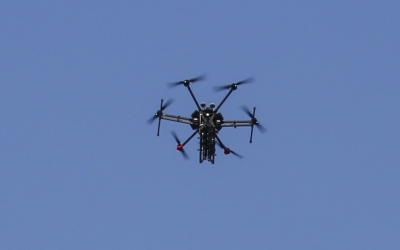
"I saw I don't know how many wounds with maggots in [them]. One of my colleagues took maggots out of a child’s throat in intensive care," he said. "There were flies in operating theatre landing in wounds."
He and his colleagues were particularly disturbed by a pattern of wounds - three to four shots on the left and right side of the chest and also in the groin area - caused by drones.
"That we thought was prima facie evidence of an autonomous drone or semi-autonomous drone because a human operator would not be able to fire with the degree of accuracy that quickly," Mamode said.
But he also said the pellets fired by most drones were also more destructive than bullets which would pierce a body straight through. Instead, the pellets were bouncing around inside bodies.
A seven-year-old boy - one of the children who had told Mamode that he had been in a bombing and then deliberately hit by a drone - came into the hospital with his stomach hanging out of his chest, and further injuries to his liver, spleen, bowel and arteries.
"He survived that and went out a week later," he said. "Whether he is still alive, I don’t know."
'They took him away and killed him'
When an MP asked Mamode if he had seen Hamas while he was working, the doctor laughed.
"I am laughing because this was a question I asked when I got there. ‘So is Hamas in the hospital?’ And they just laughed at me," he said.
"They said: 'There is no Hamas. There are a few fighters hiding in tunnels. There is no Hamas. There never was any Hamas in the hospital. Everybody hates Hamas'."
Mamode said in other conflict zones, fighters usually come in with guns in an obvious way.
"We never saw any of that. We were allowed to go wherever we wanted in the hospital," he said.
"There might have been a tunnel underneath. Who knows? But if Hamas was coming and going in the hospital, it would have been fairly evident."
His Palestinian colleagues told Mamode that when Israeli forces attacked the hospital in February, killing members of staff and putting them in a mass grave with patients, many other colleagues had been taken away and detained.
One of them included an atheist. "He hated Hamas and, before the war, he was very vociferous about those things. He just thought Islam was stupid and he thought [of] Hamas was stupid," Mamode said he had been told.
"They just took him away and killed him. That's what's going on. As far as I can see, it doesn't matter who you are in Gaza. If you are a Palestinian in Gaza, you are a target," he said.
Champion said Mamode's testimony was "profound and deeply chilling".
She said: "On this evidence, the UK needs to take seriously the prospect of international humanitarian law having been egregiously broken in Gaza."
The committee hearing came as a 30-day deadline that the US government set for Israel last month to ensure that more aid entered Gaza passed with NGOs warning that the situation in northern Gaza is in an "even more dire state today than a month ago".
Hours after Mamode's provided evidence, the Biden administration said it would not limit arms transfers to Israel as it had threatened, saying that Israel had taken "a number of steps" to address the demands it had made.
"We have not at this time made an assessment that the Israelis are in violation of US law," State Department spokesman Vedant Patel said. "We're going to continue to assess their compliance with US law. We've seen some progress be made. We'd like to see more changes happen."
Middle East Eye delivers independent and unrivalled coverage and analysis of the Middle East, North Africa and beyond. To learn more about republishing this content and the associated fees, please fill out this form. More about MEE can be found here.


